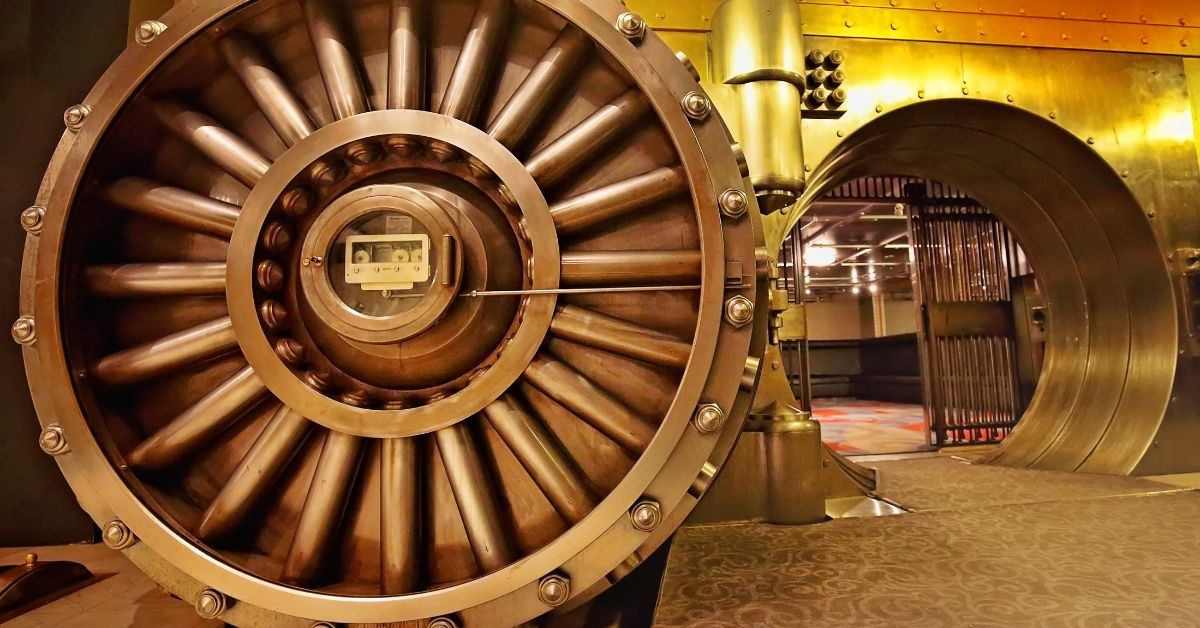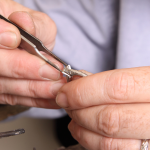If you want to purchase physical precious metals, buying them is only the first step. Deciding on a way to store and protect your new investment is an extremely important decision given the significant value of precious metals like gold.
While many ways exist to store precious metals, some are safer than others. We’ve assembled a list of ways to store precious metals in order to give you a detailed look at your options.
Banks
For some, the idea of keeping precious metals in their home is too dangerous to consider. That’s because it could potentially paint them as a target for burglary or theft. For these kinds of investors, a bank is typically one of the safest options. Banks provide top level security both internally and externally, so investors can alleviate their worry knowing their precious metals are well-guarded.
Although banks are one of the safest options there are some downsides. First, customers must pay fees for their storage services, which typically cost $200 to $500 annually. The second disadvantage is their limited accessibility. For customers to view their valuables, they need to visit the bank during its business hours, which often conflicts with most people’s schedules.
Customers might also have a hard time accessing their precious metals during federal holidays. These time restrictions could cause problems for customers should there be a financial emergency.
Third-Party Precious Metal Depositories
Precious metal depositories offer many benefits when it comes to storing and protecting precious metal assets. They provide enough space to house large amounts of bullion and provide an optimal level of security. Precious metal depositories are highly guarded and are under continuous surveillance. Entrance into these facilities are restricted and any activity inside the depository is monitored and recorded.
In addition to providing great security, many depositories have strong accounting/auditing services and insurance policies. Auditing services help prevent theft or loss by periodically recording the amount of precious metals held in each storage compartment. These checks help the depository know just how many precious metals they have and, in rare cases, calculate the amount of missing items.
If a depository notices precious metals missing from their collection, customers can rest easy knowing they will be covered by the depository’s insurance policy. The exact terms of coverage can vary, but most standard insurance policies offer financial reimbursement for incidents of theft or damage, if these events occurred after the precious metals were deposited.
Safes
For those looking to store precious metals at home, safes are one of the more secure options. They require a combination or digital code to open and are hard to move given their heaviness and size. Safes might also protect your valuables should there be a flood, fire, or other disaster.
However, safes can get very expensive with prices ranging from a couple hundred to several thousand dollars. Given the fact that safes do not benefit from the security and insurance provided by a bank or precious metal depository, it’s important to carefully consider your decision to store valuables in a safe.
Choose Storage Carefully
All in all, your storage choice will depend on the amount of risk you’re willing to take as well as your budget. No matter your choice, make sure you are choosing the safest form of storage possible. If you’re looking to purchase or store physical bullion, consider using MGS Bullion Investment & Storage. We’ve partnered with approved vaulting partners to provide quality storage, insurance and transportation services.












